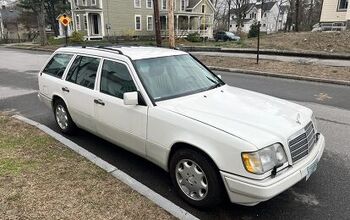Senators Seek to Overturn U.S. Emission Rule for Heavy Trucks

On Thursday, a number of Republican senators announced they would be attempting to overturn the U.S. Environmental Protection Agency’s (EPA) rules designed to cap emissions on heavy-duty trucks. Finalized by the EPA in December, under guidance from the Biden administration, the new rules are supposed to be 80 percent more stringent than the current standard. However, critics have alleged the updated limits effectively benefit large shipping companies by making it too difficult for smaller trucking companies or independent operators to comply.
The rules tighten annually and come with more aggressive testing protocols to ensure vehicles are within the newly acceptable standards. The EPA alleges that, by 2045, the rule will result in up to 2,900 fewer premature deaths annually, 1.1 million additional school days for children that would have been lost due to respiratory illnesses, and $29 billion in annual net benefits. Though the qualifications for those statements are a little suspect and highly reminiscent of The Simpsons’ Hellen Lovejoy shrieking “ won’t someone please think of the children.”
It’s not that diesel emissions are great for your lungs, they absolutely are not. It’s that there’s no sound way to quantify the number of lives that will be saved based on the singular factor of reduced NOx emissions. But you can do these kinds of mental gymnastics with just about anything. Brake dust, for example, is likewise known to promote respiratory illnesses and could easily be spun into claims that forcing vehicles to use smaller brake pads or carry less weight could have a positive health impact. Then officials can attribute rising crash fatalities to subsequent environmental regulations on brakes – and on and on it goes.
"It's really important – especially for protecting the health of the 72 million people living near truck freight routes in America," EPA Administrator Michael Regan told Reuters late last year, adding the rule will result in a possible 48-percent reduction in smog-forming nitrogen oxide (NOx) emissions by 2045. “This is a very, very aggressive approach to reduce NOx emissions.”
Regan’s take on the matter shouldn’t be surprising. His career with the EPA began in 1998 and he likewise served as the secretary of the North Carolina Department of Environmental Quality before creating the state's Environmental Justice and Equity Board and is a major proponent of “environmental justice.” Regan’s entire career has been all about strengthening government involvement in regulatory matters. He supports 2030 carbon reduction targets, national carbon neutrality by 2050, and is a major proponent of race-based environmental laws.
Suffice it to say, Regan is on board with the Biden administration’s most-aggressive regulatory proposals and likely has been long before he was chosen to head the EPA.
But the partisan blade cuts both ways, with the Congressional opposition to the new trucking rules coming primarily from Republicans. While there have been Democrats similarly suggesting the new restrictions could add to supply chain costs during a period of economic duress, the formal opposition to the rule is coming from 34 senators with the letter R next to their name.
Republican Senator Deb Fischer of Nebraska is heading that effort and believes there’s a chance for legislators to utilize the Congressional Review Act to block the rules before they can go into effect this March. This would require a majority in both chambers and seems plausible considering Democrats hold a 51-49 majority in the Senate, while Republicans control the House.
Reuters has also reported that Todd Spencer, president of the Owner-Operator Independent Drivers Association, has asserted that small business truckers could not afford the new, compliant trucks and they would stick with older, less efficient trucks or simply exit the industry entirely. This mimics the general response to the contentious trucking regulations we’ve seen in California of late.
Additionally, the EPA has plans to propose "Phase 3" greenhouse gas (GHG) standards for heavy-duty vehicles and new emissions standards for light- and medium-duty vehicles next month. Those are supposed to come into effect for 2027 model-year vehicles. But we’ve seen how much can change between administrations and how much of the EPA’s regulatory action is done by decree – rather than any kind of formal legislative process. Donald Trump used executive orders to roll back Obama-era regulatory targets and Joe Biden effectively did the same thing to pitch them back in the other direction. Now they’re trying to establish even stricter limits.
At this stage, I’m not really sure how much utility there actually is to choosing a regulatory framework based exclusively on political allegiances. Neither side seems willing to entertain the other’s perspective and all possible scenarios have sweeping ramifications for regular Americans. Shipping is a major contributor to greenhouse gas emissions and trucking comprises a significant portion of all air pollution created by the transportation sector (representing an estimated 23 percent of the whole). But hamstringing an industry that’s already having trouble managing costs runs the risk of increasing the price of all commodities. We’ve also seen government actions taken during the pandemic having very negative repercussions for small businesses. The concerned parties are worried that the EPA’s actions could worsen this trend while giving the largest operators an opportunity to monopolize the trucking industry.
[Image: Vitpho/Shutterstock]
Become a TTAC insider. Get the latest news, features, TTAC takes, and everything else that gets to the truth about cars first by subscribing to our newsletter.

A staunch consumer advocate tracking industry trends and regulation. Before joining TTAC, Matt spent a decade working for marketing and research firms based in NYC. Clients included several of the world’s largest automakers, global tire brands, and aftermarket part suppliers. Dissatisfied with the corporate world and resentful of having to wear suits everyday, he pivoted to writing about cars. Since then, that man has become an ardent supporter of the right-to-repair movement, been interviewed on the auto industry by national radio broadcasts, driven more rental cars than anyone ever should, participated in amateur rallying events, and received the requisite minimum training as sanctioned by the SCCA. Handy with a wrench, Matt grew up surrounded by Detroit auto workers and managed to get a pizza delivery job before he was legally eligible. He later found himself driving box trucks through Manhattan, guaranteeing future sympathy for actual truckers. He continues to conduct research pertaining to the automotive sector as an independent contractor and has since moved back to his native Michigan, closer to where the cars are born. A contrarian, Matt claims to prefer understeer — stating that front and all-wheel drive vehicles cater best to his driving style.
More by Matt Posky
Latest Car Reviews
Read moreLatest Product Reviews
Read moreRecent Comments
- Zerofoo The green arguments for EVs here are interesting...lithium, cobalt and nickel mines are some of the most polluting things on this planet - even more so when they are operated in 3rd world countries.
- JMII Let me know when this a real vehicle, with 3 pedals... and comes in yellow like my '89 Prelude Si. Given Honda's track record over the last two decades I am not getting my hopes up.
- JMII I did them on my C7 because somehow GM managed to build LED markers that fail after only 6 years. These are brighter then OEM despite the smoke tint look.I got them here: https://www.corvettepartsandaccessories.com/products/c7-corvette-oracle-concept-sidemarker-set?variant=1401801736202
- 28-Cars-Later Why RHO? Were Gamma and Epsilon already taken?
- 28-Cars-Later "The VF 8 has struggled to break ground in the increasingly crowded EV market, as spotty reviews have highlighted deficiencies with its tech, ride quality, and driver assistance features. That said, the price isn’t terrible by current EV standards, starting at $47,200 with leases at $429 monthly." In a not so surprising turn of events, VinFast US has already gone bankrupt.


































Comments
Join the conversation
The biggest problem is allowing the unelected unaccountable agencies make up these regulations based on unprovable assumptions instead of forcing the representatives to actually vote on the regulations and be accountable to their constituents.
As Hari Seldon said it is time for civil war. Traders vs Bureaucrats.